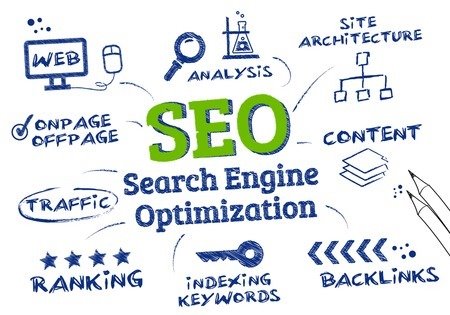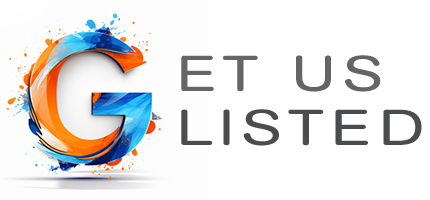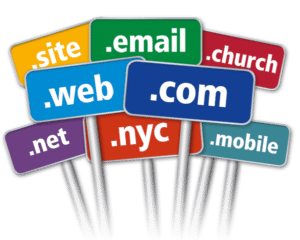Search engine optimization a.k.a. SEO, is imperative for any business to grow online. What was formally spoken of in passing by even established website owners with a huff and quickly followed by a “we don’t bother with that” is no longer optional.

Over the years we’ve all heard phrases like “if you build it, they will come“… But how will the people come if they are unable to find you on the major search engines they use on a daily basis? Unless your social media game is as strong as Hercules on steroids, you’re going to need some help in the SEO arena in order to bring in potential clients.
What we’re going to do when this article is explain how you yourself can skate around paying people such as us, Get Us Listed, into fixing your websites issues in order to obtain a better ranking on search engines.
Why would we do this you ask?
Simple, because we know the chances of you devoting the amount of time it’s going to take in order to tweak your current website and content, or even start a new website by using the list below is slim to none.
But, by you simply attempting this will reveal to you just how difficult it is to achieve and more adequately understand exactly why we charge what we do in order to achieve the goals you’re setting for company. Which as history has shown, will inevitably result in you coming to us for help as many others have throughout the years.
So to paraphrase Arnold Schwarzenegger in Terminator “you’ll be back”.
Now let’s get down to the nitty-gritty.
* SEO Audits
First off let’s discuss some of the tools that are used in order to find where you actually stand in search engine rankings based on the keywords that are currently used on your website. In order to achieve this we need to use some of the free SEO tools that will give you a brief understanding of what exactly is wrong with your current website and how you can fix it.
Using one of the many free online audit tools will give you a general understanding of what exactly is wrong with your website and even tell you how to fix some of the problems. Now keep in mind, if you have absolutely no experience in editing a websites HTML then you may encounter some problems rather quickly which may result in bigger screw ups than you had before you even started attempting to manipulate your website for better SEO.
So, always be sure to back up what you’re doing in a completely separate directory. Then simply copy that and create a new directory with the duplicates that will then be edited.
* Search Engine Indexing and Crawling
Now first things first in the realm of SEO, let’s make sure that your website can even be indexed and crawled by the major search engines.
In order to do this you can submit your XML sitemap file into Google and Bings Webmaster tool section.
* XML Sitemaps
What is an XML sitemap you ask?
In layman’s terms, it’s simply a file that tells the search engines everything that is listed on your website, and how frequently to check back in order to see what is going on with the post or page. This is absolutely imperative to be properly indexed in Google without the search engine needing to find you through other means.
Eventually, we may even do an article on exactly what you need in order to create your own XML sitemap and explain more in depth how it improves your sites SEO, however were trying to keep it pretty simple right now and just explain the bare necessities of what you need without overwhelming you with information. Because as I said above, we want you to try this first in order to see exactly what is needed in order to achieve the results you strive for and not make your head explode with doubt right from the jump.
You’ve got this! Kinda… Maybe… We’ll see… You in a few months!
* Robots.txt
What is a robots.txt file?
This file is simple to add, and a staple for basic SEO. It basically tells search engines what pages they should and should not index. By default, most search engines will automatically scour through every page on your website that they can find and index it. That also includes pages that you don’t want search engines to index that can be used by potential hackers. A good example is an administration section of the website that is meant for only the owners to use.
Related: BAD WEB DESIGNERS ARE CRUSHING YOUR BUSINESS, HERE IS WHAT TO LOOK FOR…
*Domain Names
Some people would have you believe that domain names actually don’t matter anymore for SEO, those people would be wrong as a parent who names their kid Mercedes when they drive a busted Honda.
The choice in your domain name actually matters an awful lot, especially if you’re attempting to start a random blog in some obscure niche. Putting some of those keywords into that domain name will help you in your it attempts to achieve a better ranking.
You can always use sites such as Go Daddy in order to purchase your domain names and be given a list of alternatives.
Just a side note, if the .com is unavailable then there is a good chance you do not want to purchase that domain name because most people that are attempting to view your website will type in the .com before going to your alternative domain. Whether it be .net, .info, .org or any other variation.
If you have additional domain names that are redirecting to your other domain name, ensure that you’re using a 301 redirect instead of mirroring one domain with a 302 redirect. This will prohibit search engines from confusing your content as merely a duplicate and messing with your SEO.
* Your Websites Speed
Another absolutely imperative aspect of running a website setup for proper SEO is how fast it loads. Ensuring your website loads quickly as possibly one of the most important parts of your search engine optimization. Especially if your website has an abundance of images that are large files when uploaded.
It is also important to note that a slow loading website actually discourages users from viewing more of your website, you will drastically increase your bounce rate and more than likely not achieve a subscription or a purchase of those cute kitty sweaters you have grandma needle pointing away at.
So don’t be cheap, you’re only limiting maw-maw’s Bingo money.
* Website Architecture
Does your website have a hierarchy and structure like a finely tuned military that is built into your navigation? If not, you may want to look at adding some as soon as possible. Not only does this help with SEO by telling search engines your sites structure, but it is also highly beneficial to users that see organize topics and content rather than a website that is filled with information without rhyme or reason and technologically impaired viewers know how to find what you’re selling or promoting.
* SSL Certification
Having a secure website tells your users that you care about their security. Recent roll outs by Google have now started listing unsecured websites with warning pages on the world’s most popular browser, Google Chrome, prior to the user ever seeing the website which could drastically reduce the amount of people that actually make it to your website and really limit your site from utilizing the best SEO tactics.
* Mobile Friendly
The usage of smart phones in order to view websites has increased exponentially over the last 5 years. Many statistics show that more people are using their cell phone in order to view websites then their desktop or laptop computers. So if your design is not responsive and set up with some sort of mobile framework, you may be losing customers quicker than a restaurant with a cockroach problem.
You can always use Google’s mobile friendly test in order to see if your current website is optimized properly for mobile devices and tablets.
* Meta-Tags, Meta-Descriptions, and Meta-Titles

Now we’re reaching the portion of this article that may be one of the most important parts overall for proper SEO.
Firstly, although meta-tags are no longer an important factor in your websites ranking, it’s still important to be sure to include them just in case things change in the near future. As far as meta-descriptions and meta-titles, it is absolutely imperative that these are properly set up and using the keywords that you’re attempting to be ranked for.
Take for example if you are intending to post an article about “bulldog health” in the keyword “bulldog health” is what you’re shooting for ranking with. But the title of your post is “This Is How I Kept My Dog Healthy”. Not only did you miss the keyword bulldog, but you also missed the keyword health. Sure, one could argue that health is simply healthy without the y, but that is not how search engine algorithms are going to view that page.
Understanding this basic information is key in order to achieving proper SEO which directly results into better rankings in search engines for the keywords that you’re shooting for.
Now also keep in mind, it is not necessary to type the same keywords repeatedly throughout the article that you’re attempting to get ranked for, this isn’t an infomercial that feels the need to recite the domain 80 times in 2 minutes. A few times is fine, overkill results in negative rankings due to the fact the algorithm will believe that you are keyword bombing, also known as Google bombing. Which is a practice that Google shunned years ago.
When writing meta-descriptions be sure to include the same keywords (just once, don’t go all Tourette’s with it) that you are using in the title to ensure that the search engines know exactly what keywords are important to this article or website.
Again, don’t overdo it!
* Write / Share Good Content
You would think that common logic would dictate that the higher quality the content, the more engaged the user is. Sadly, a lot of people believe simply sharing the most basic of thoughts incoherently is going to somehow resort to millions of followers. This may work for some people on social networking websites who take pictures of their scantily clad body to show off their new shoes, but it will not work on personal websites unless you’re starting out with huge following that is driving traffic from those social networks.
Now, if you’re attempting to get search engines to think your credible then you’re going to need to produce some quality content that people engage in. This doesn’t necessarily mean you need to write books as posts unless it’s needed to get your point across (he says as he writes a book for a post). However, it does mean that you’re going to have to produce well-written articles for search engines to even take you seriously. Now, if you can achieve high-quality post as well as long written articles, Google will absolutely love you and start sending some love your way with a plethora of searchers looking to buy those handmade sandals you’re making from old car tires. The Roman’s would marvel at your ingenuity!
These articles will also need to be filled with the keywords that you’re attempting to rank for on the major search engines. Again, just do not overdo it with the keyword bombing that will inevitably result in your article not ranking where it should be.
Related: 13 WAYS A FACEBOOK FAN PAGE IS KILLING YOUR COMPANIES ONLINE GROWTH
* Headings
Over the years many people have debated the importance of heading or “H” Tags. Do they really matter as much as some people say? Probably not. But do they matter? Absolutely!
Properly utilizing the heading tags could ensure that your website is actually ranked better than those that may have higher quality articles.
What is the heading tag you ask? Have you ever looked at a website and saw that bold headline at the top? That is the heading.
While mixing it finally worded heading tag including the keywords that your article is attempting to rank for could be key in your posts or websites success on search engines.
You could even use H1, H2, H3 and so on throughout your article in order to accentuate the following paragraphs importance and make it easier on your users to find exactly what they’re searching for without having to read the entire article. This article is a good example of how to properly use headings.
* URL Structure
Some websites have been around for a very, very long time… and a dead giveaway on to how long they’ve been around for is their URL structure, not just the copyright date of 2001 in the footer, or the. gif’s with sparkly lettering.
Ever look at a website that has a bunch of question marks followed by numbers and equal signs? Chances are that website URL structure is completely outdated.
The importance of a clean URL structure will allow search engines to rank you even better for keywords that you’re attempting to target. So instead of
/?out=8675982673487=new?post
the URL would be more like
/seo-optimization-checklist
And rank much higher on search engines in the process.
*Inbound and Outbound Links
Linking to your own post within your website isn’t like YOU boasting about your high school achievements 20 years after you graduated, this helps increase your own posts visibility. However, getting a plethora of links from websites that already possess some authority with search engines is even more key. It’s basically like OTHER people boasting about your achievements in high school at your 20-year reunion. It merits more credibility.
Whether it be simple citations from credible individuals who have a following, or you’re getting inbound links a.k.a. backlinks from websites that have already been ranked by Google, all of these will help search engines recognize your website as a more credible source of information.
Now, whatever you do, do not go into Spaminator mode and seeking to make a zillion comments on articles that are ahead of yours. This may have worked in the past, but it doesn’t anymore and will be looked at as spam and more than likely cause your website to lose its ranking, not climb higher.
Now, back to being a little conceited.
Linking to your own post is also highly regarded to generate more traffic from within your own website, but also helps search engines decide what posts and pages your own website values as more credible. We generally suggest linking to at least 2 posts or pages within your own website per article.
* Schema
While moderately new in comparison to a lot of the previous points we’ve discussed, Schema is quickly gaining notoriety as one of the most important ways to tell search engines exactly how valuable the page or post your attempting to get ranked actually is by providing them with even more information.
Using this structured data markup for your website will allow the search engines to see more than just what the user sees, but also see things such as business phone numbers, addresses, and other information you may include in the schema markup that will not be displayed directly on the page. But, it will be displayed under the article when people find it on major search engines.
Now, it is not imperative for every website to have this, we simply suggest most businesses add it as quickly as possible in order to ensure they stay ahead of their competition who will inevitably add it in order to stay up with the current trends.
* Image Alt Tags
One of the simplest things you can do for search engine optimization is to be sure you’re using the correct alt tags when adding images to your website. This simple, but efficient HTML tactic allows a search engine to properly name an image. Therefor giving it a better possibility of being indexed by the numerous image search engines around the internet.
Doing this properly could also ensure you receive even more free traffic from the search engines.
* Local Search

If you own a physical business, you absolutely need to understand exactly how business and local directories play in the credibility of your business.
Which is why we personally offer submission to over 70 business directories. Getting listed on the 70 directories instantly adds more credibility to your business. It also makes it much easier for those searching locally to find your business, as you’ll be inundating them with directory after directory showing you coming up first.
In some instances, even if your website doesn’t come up at the top, your directory listing will due to the authority of the directory. Which means one way or another, people are going to find your business. Which is actually the goal, right?
And last, but not least.
* Social Media
Social media marketing and networking has been talked about for the last 10 years now steadily. However, most people don’t even realize how to properly run their own personal Facebook page, nevertheless, to run a fan page for their business properly. Hence the reason we also offer social media management, and social media marketing in order to ensure their not wasting their time or money.
But I digress, social media can enhance your search engine optimization in a massive way. Although its direct impact on your search engine rankings may be minimal, ensuring that you have an active following on social media accounts will directly increase your websites engagement. By doing so resulting in your company being seen by the search engine overlords as more valuable to the customers they’re attempting to send you, which in turn results in your company receiving higher rankings in said search engines.
The end result? More followers = more customers = more money!
So be sure to link all your social media accounts on your website in order to ensure people that are coming from other social networks are capable of following you on all of them.
The conclusion…
Whether you have the time and patience to do what we have listed above, or you would prefer to simply hire us to do it instead, we’re proud to help you achieve the results that you’re striving for.
If you somehow can master the optimization listed above, be sure to stay on top of it because this is not a simple one time and done a fair. This is a tedious task that requires daily implementations as your website grows.
But since you have to start somewhere, we have provided you the groundwork above you can use in order to start achieving some results on your own.
[button-red url=”https://www.getuslisted.com/contact-us/” target=”_self” position=”center”]Contact Us for a Free Website Audit[/button-red]
